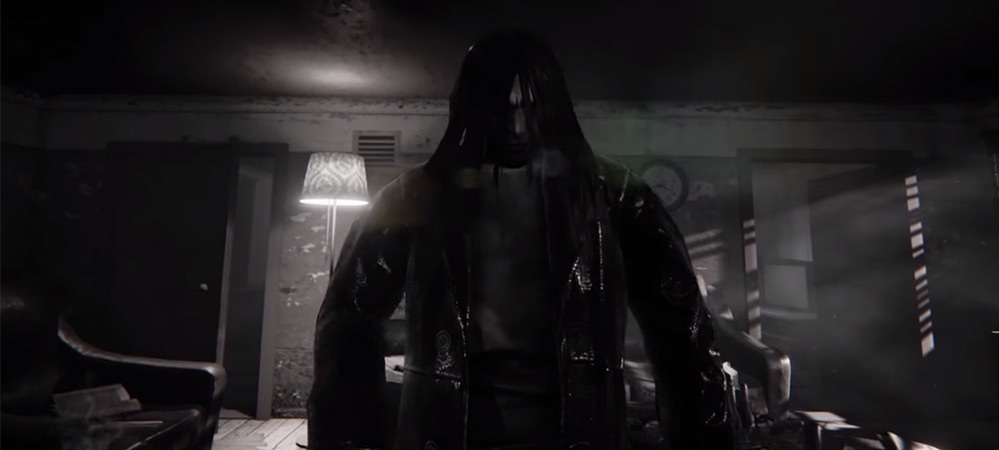Take our power away
Last week, we saw the announcement and reveal trailer for Hatred — a game that puts the player in control of a suicidal person who sets off on a rampage to kill as many citizens and cops as possible before being killed in action. The reaction was polarizing to say the least. Some found it intriguing and explorative; others found it deplorable and tasteless.
The near-universal constant, however, was that almost everyone agreed Hatred has the right to exist. But, as such, everyone has the right to critique it. Nothing’s immune in that sense. Given some time to let that critiquing sink in, the ultimate question that arises from Hatred is “How did videogames as a whole get here?”
The most divisive and obvious conversation piece surrounding Hatred is its wanton violence. The trailer depicts, among other things, execution-style murders of police and civilians alike, many of who are pleading for their lives. There are two camps of thought concerning this. One thinks it falls in line with what is commonplace in Call of Duty and Grand Theft Auto; the other feels it’s over the line and that the context, tone, and glorification of the killings make all the difference.

It’s hard to fault one group over the other for its stance. After all, if that large of a contingent has the exact same opinion, it can’t just be readily dismissed, right? But while Hatred will likely end up as a relatively small blip in the history of gaming, it presents the opportunity to analyze what we find acceptable and appropriate in videogames as the medium progresses.
There’s no denying that videogames have gotten increasingly violent as the years have passed. The standard now may have once been unthinkable. Whereas the likes of Doom and Wolfenstein pitted the protagonist against pronounced evil forces, that distinction has become much more nebulous. Many games offer the option to callously murder the sandbox world’s innocent inhabitants. There’s no longer a necessary and inherent sense of good-doing, just affecting the virtual world in whatever way the player would like.
We’ve gotten to this point because developers have cautiously and wisely toed that line of what society finds acceptable in videogames, and gradually moved it. It’s happened so slowly, each toeing of that line just a nominal increase, that it rarely raised any red flags. Only on the occasion that a developer strives to overstep this line is it noticeable. Titles like Postal and Manhunt have a reserved spot in everyone’s mind for that exact reason.

That’s why comments sections and discussion boards are filled with conversation about whether Hatred is okay or not — because we’ve spent many years getting acclimated to violence in videogames. Now, we’ve reached a crossroads of sorts where a large chunk of the populace is either fully on-board or desensitized to the ideas that Hatred brings to the table. That’s quite a leap from where we started. If it’s so simple for so many to draw a clear parallel between Hatred and existing games, it’s tough not to take a step back and wonder if maybe we’ve begun to “max out” where violence in videogames can go from here.
Violence isn’t going to suddenly disappear from videogames. There will always be a market for it; it will always be a staple of games. That’s good. It can be an evocative tool for story-telling, and the medium would be worse off without it. But, the formula feels stale now more than ever. Each and every year, so many titles are released that are nothing more than power fantasies about being an unstoppable force in a malleable world. It’s boring and uncreative. Maybe it’s time for a change.
What if more videogames went against this standard by taking the player out of the driver’s seat and putting them at a disadvantage? Flip the tables, and all of a sudden violence means something again. Killing a thousand soldiers during the course of a campaign lends very little weight to the action. Stealthily subverting as many enemies as possible and only resorting to violence when necessary, or being underpowered compared to most foes makes violence entirely more impactful.

The one genre of games that often nails this balance is true survival horror. Alien: Isolation is an excellent recent example. The player almost always has weapons available — such as a revolver, flamethrower, and stun baton — that can inflict violence. However, their use always comes with the potential of creating an exponentially hairier situation. It gives the player pause. “Is shooting a gun here the best idea? Or, will it just make everything worse?”
Often times it’s the latter, but sometimes violence is necessary. On those occasions, there’s a trade-off for your actions. Yes, an immediate threat has been dealt with, but at the cost of precious ammunition, and the heightened awareness of other enemies and the omnipresent alien. It’s not ideal, but it did the trick.
There’s no denying that the de facto for triple-A titles is a man with a gun shooting many other men with guns. It’s been that way for years now, and it’s woefully iterative. Even games that present interesting new concepts often default back to familiar mechanics for the lion’s share of the gameplay. That’s just lazy design.
The cumulative result is a game like Hatred that doesn’t seem so far out of left field. Stepping back to think about it, that’s a crazy realization. Maybe it means that we need a shake-up with game design. Keep the violence; it has its place. But, more games need to take the power away from the player. That way, violence will mean something again.





Published: Oct 22, 2014 02:00 pm